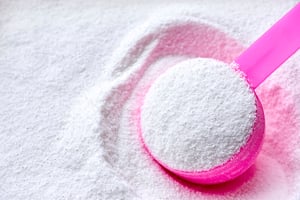Stewardship Principle
One concept widely agreed upon is the principle of stewardship. According to Wikipedia, it "is an ethical value that embodies the responsible planning and management of resources." We will apply stewardship concepts to environmental health, human health, soft and hard surface preservation, and resources such as water, energy, and equipment. Paying attention to the core value of stewardship involves purpose, research, and clear decisions to make it a priority in any business. We will discuss how our industry can apply pertinent principles to your business, reflecting your commitment to stewardship. Stewardship can be a universal value beyond politics, as we make common-sense decisions on how professional cleaning lengthens the use of furnishings and slows down landfill accumulations. We may not agree on every application, but we can agree on the direction we want to pursue. It starts and ends with the pursuit of stewardship.
Indoor Human Health
Our premise is that all cleaning should improve the condition of human health based on a cleaner home and business. Often, environmental safety is strongly correlated with human safety, but there are exceptions. For instance, caustic soda and hydrogen peroxide, while safer for the environment in the right concentrations, can endanger human health. In our production plant, the most dangerous ingredients we handle are caustic soda and hydrogen peroxide. Even after dilution, they can still cause serious irritation to the skin and eyes. In contrast, phosphates, "generally regarded as safe" for humans, pose risks to the environment.
Phosphates, as a sequestrant, improve and preserve the quality of many foods and are typically safer than most environmentally safer ingredients. We use phosphates for their multi-functionality. While most ingredients provide a few functions to a cleaning solution, phosphates bring many different functions. They build alkalinity, prevent removed soil from redepositing, buffer pH at similar levels for various dilutions, chelate minerals that form soil, soften water, and disperse soil into cleaning solutions resulting in free rinsing. Moreover, they work at very high dilutions.
 Phosphates (processed rock) are not considered safe for the environment if introduced to our water supply at uncontrolled levels. They act as a fertilizer to algae, causing eutrophication, dangerous to fish. Recent regulations limit concentrations to 0.5% in laundry and auto dish detergent. For many households, a professional cleaning will happen once a year while a few hundred loads of both clothes and dishes occur every year. While work needs to be done to limit fertilizer usage, phosphates for professional cleaners do much more for less at very high dilutions. Annual usage at high dilutions for most homes increases the likelihood of healthy homes and commercial spaces without impacting our environment beyond the micro level.
Phosphates (processed rock) are not considered safe for the environment if introduced to our water supply at uncontrolled levels. They act as a fertilizer to algae, causing eutrophication, dangerous to fish. Recent regulations limit concentrations to 0.5% in laundry and auto dish detergent. For many households, a professional cleaning will happen once a year while a few hundred loads of both clothes and dishes occur every year. While work needs to be done to limit fertilizer usage, phosphates for professional cleaners do much more for less at very high dilutions. Annual usage at high dilutions for most homes increases the likelihood of healthy homes and commercial spaces without impacting our environment beyond the micro level.
The main point is that different ingredients perform different tasks, whether they are environmentally safer or not. A clean home or business is safer for infants, kids, teenagers, adults, and seniors, ensuring both physical and psychological health. We should not be narrow-minded and avoid using an ingredient that promotes human health, even if it is not always environmentally friendly. Stewardship is a principle where a balanced approach is better than a dogmatic one.
